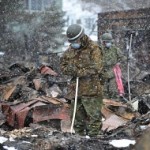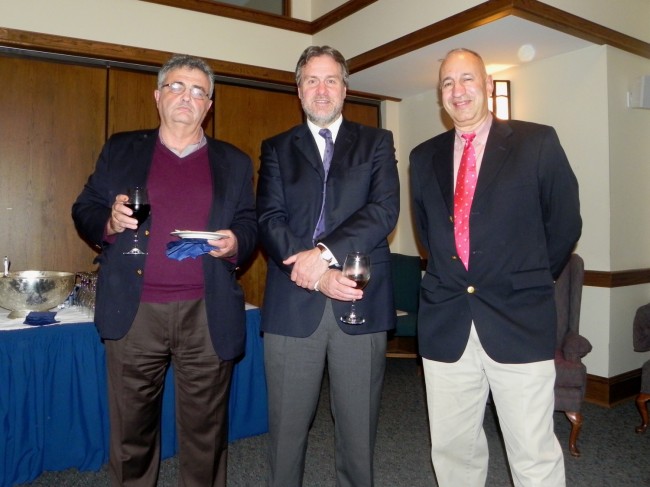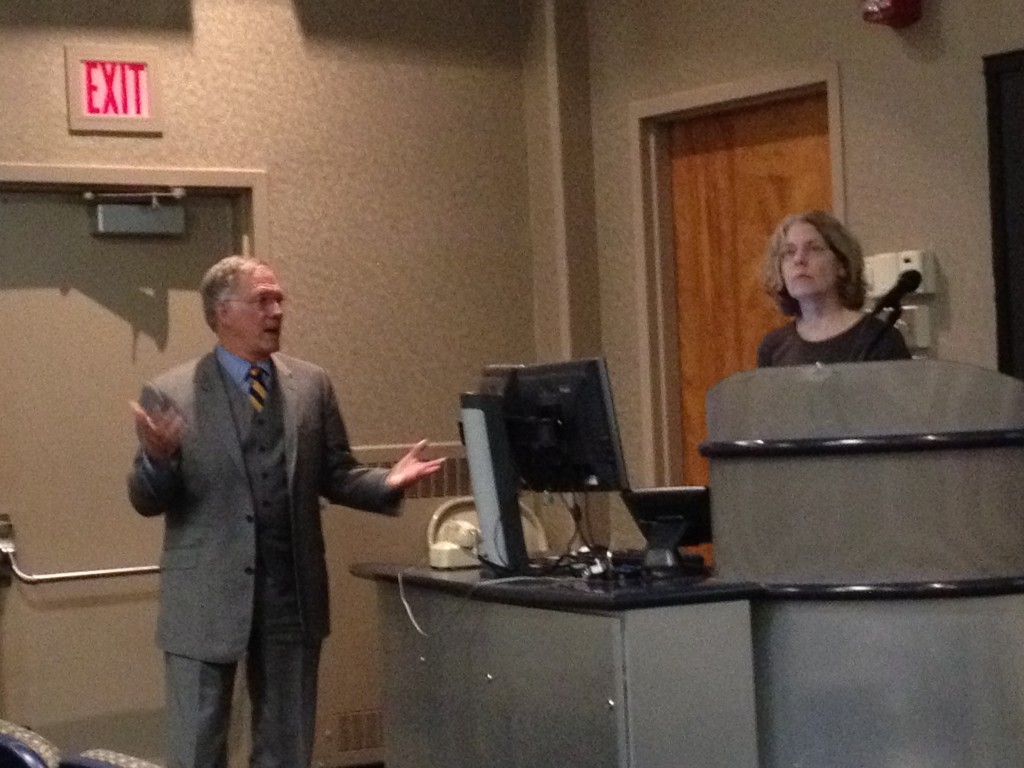Lecture: ‘How the Irish Became Black’ with Prof. Bruce Nelson

By Michael McLean (History major, Class of 2014)
Today’s history lecture titled “How the Irish Became ‘Black’: Irish Identity in the 19th Century” provided an in-depth look at Irish identity and race relations. After giving a brief historical context on Ireland (the potato famine, mass emigration, British imperialism, etc.). Historian Bruce Nelson of Dartmouth College provided a number of images and anecdotes which displayed how the Irish were indeed labeled as a black, “negroid” race in the US and England, far inferior to other white Europeans. For instance, the Irish frequently appeared in political cartoons depicted as ape-like creatures, and were described as lazy savages with dark skin. The arguments for this kind of thinking are of course ridiculous, if not outright laughable. Nevertheless, Nelson highlighted a vital phenomenon in the history of racial identity. It is now scientifically accepted that there is no biological basis for race, but rather a social construction, and skin color has no affect on personal characteristics (i.e. intellect or diligence). Still, concepts of race still dominate much of our lives in the US and act as a tool to perpetuate inequality. In this way, the lecture was a crucial reminder that race is not as fixed as many of us would like to believe, and what constitutes “blackness” has changed dramatically over the course of history.
Borden W. Painter Jr Lecture: Prof. Kathleen Kete
By: Carolyn Taratko (History, Class of 2012)
On Tuesday, February 7th Professor Kathleen Kete gave the inaugural Borden W. Painter Jr. Lecture in the McCook auditorium. Professor Kete lectured on her current project, a history of the Alps in the French Revolution. Using Horace Benedict de Saussure’s Voyage dans les Alpes (held in our own Watkinson Library) as a guide, she interrogates the relationship between natural and civil history in the eighteenth century. Saussure, a Genevan aristocrat, was also a naturalist and a climber whose 1787 summit of Mont Blanc captured the nation’s attention. His extended forays into the Alps resulted in extensive observations on botany, geology and glaciers, but also nuanced descriptions of the mountains and the people who inhabited them. These two spheres of inquiry, the first scientific and the second picturesque, were published separately in post-Revolutionary France.
(more…)
Lecture: Recovery and Clean-Up Stalls in Wake of Japan’s Earthquake and Tsunami
 “HARTFORD, CT, November 16, 2011 – The devastation from the magnitude 8.9 earthquake that struck northeastern Japan in March of this year is almost unimaginable, with tens of thousands of people having fled, leaving the poor and the elderly to fend for themselves and gigantic piles of debris everywhere. That was the bleak picture painted by Jeffrey Bayliss, associate professor of history and an expert on Japan and Japanese culture and history, and Amelia Wei ’12, who spent a month in Japan during the summer conducting research concerning the recovery and relief efforts. Bayliss and Wei spoke at a November 15 Common Hour event sponsored by the Center for Urban and Global Studies.
“HARTFORD, CT, November 16, 2011 – The devastation from the magnitude 8.9 earthquake that struck northeastern Japan in March of this year is almost unimaginable, with tens of thousands of people having fled, leaving the poor and the elderly to fend for themselves and gigantic piles of debris everywhere. That was the bleak picture painted by Jeffrey Bayliss, associate professor of history and an expert on Japan and Japanese culture and history, and Amelia Wei ’12, who spent a month in Japan during the summer conducting research concerning the recovery and relief efforts. Bayliss and Wei spoke at a November 15 Common Hour event sponsored by the Center for Urban and Global Studies.
(more…)
Mead Lecture: Yale Professor Visits Trinity, Discusses Genocide

By: Jordan Hillier (Class of 2015)
“On Wednesday, Nov. 9 Whitney Griswold Professor of History at Yale University Ben Kiernan held a lecture at Trinity College about the history of Genocide. He stated that the legal definition of genocide is defined as “deliberate and systematic [acts committed with intent to destroy], in whole or in part, an ethnic, racial, religious, or national group.” He explained to a group of Trinity students what he had learned over the past few years through his extensive study of the term, idea, and reality of genocide. What Kiernan discussed during his lecture was a conclusion he came to, which was that while some incidents reside soundly within the legal definition of “Genocide”, this description cannot encompass all of the episodes that take place. Kiernan walked the audience through the history of genocides and the characteristics of the horrendous acts that take place. No two acts of genocide are alike, however genocidal thinking is generally racist and based on religious ideals.
(more…)
